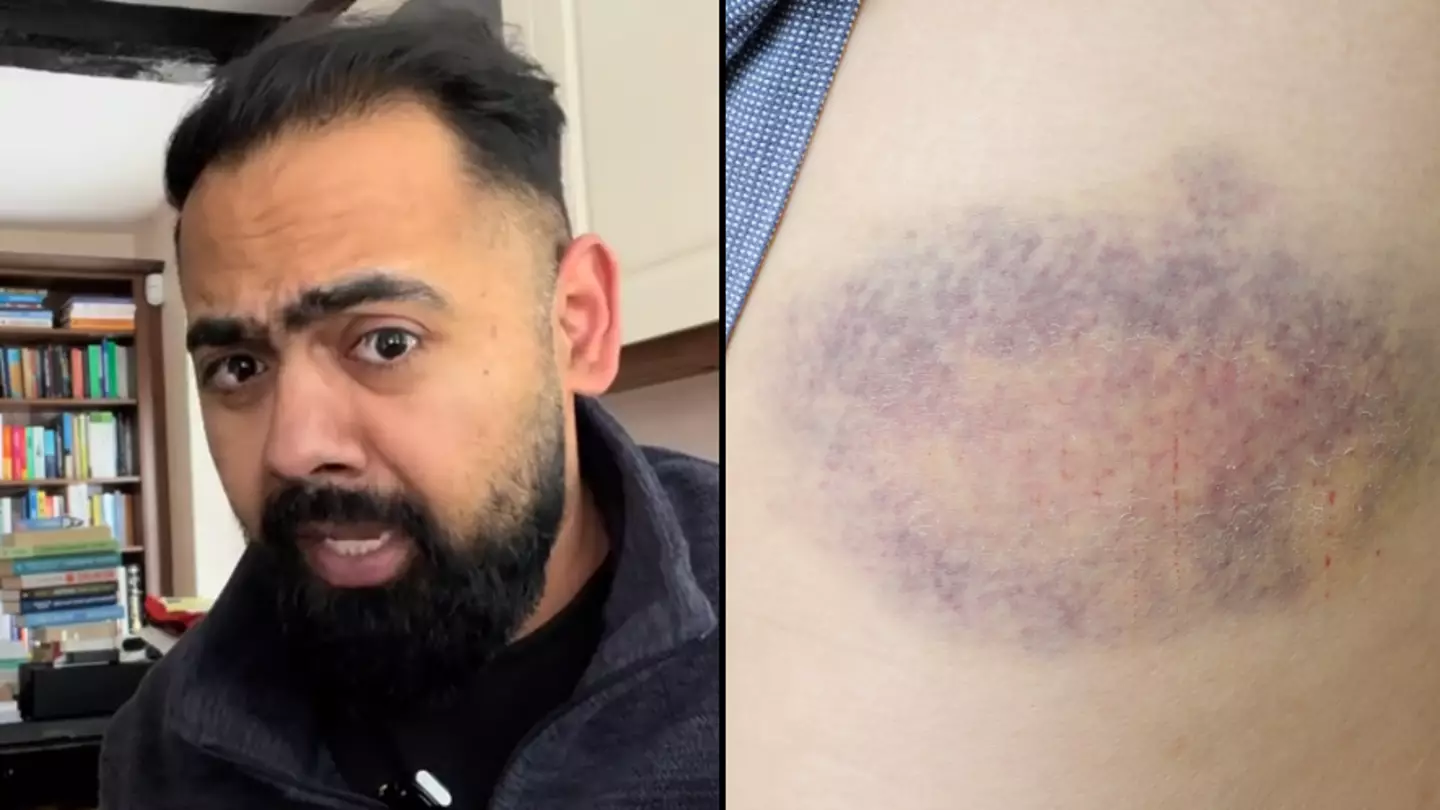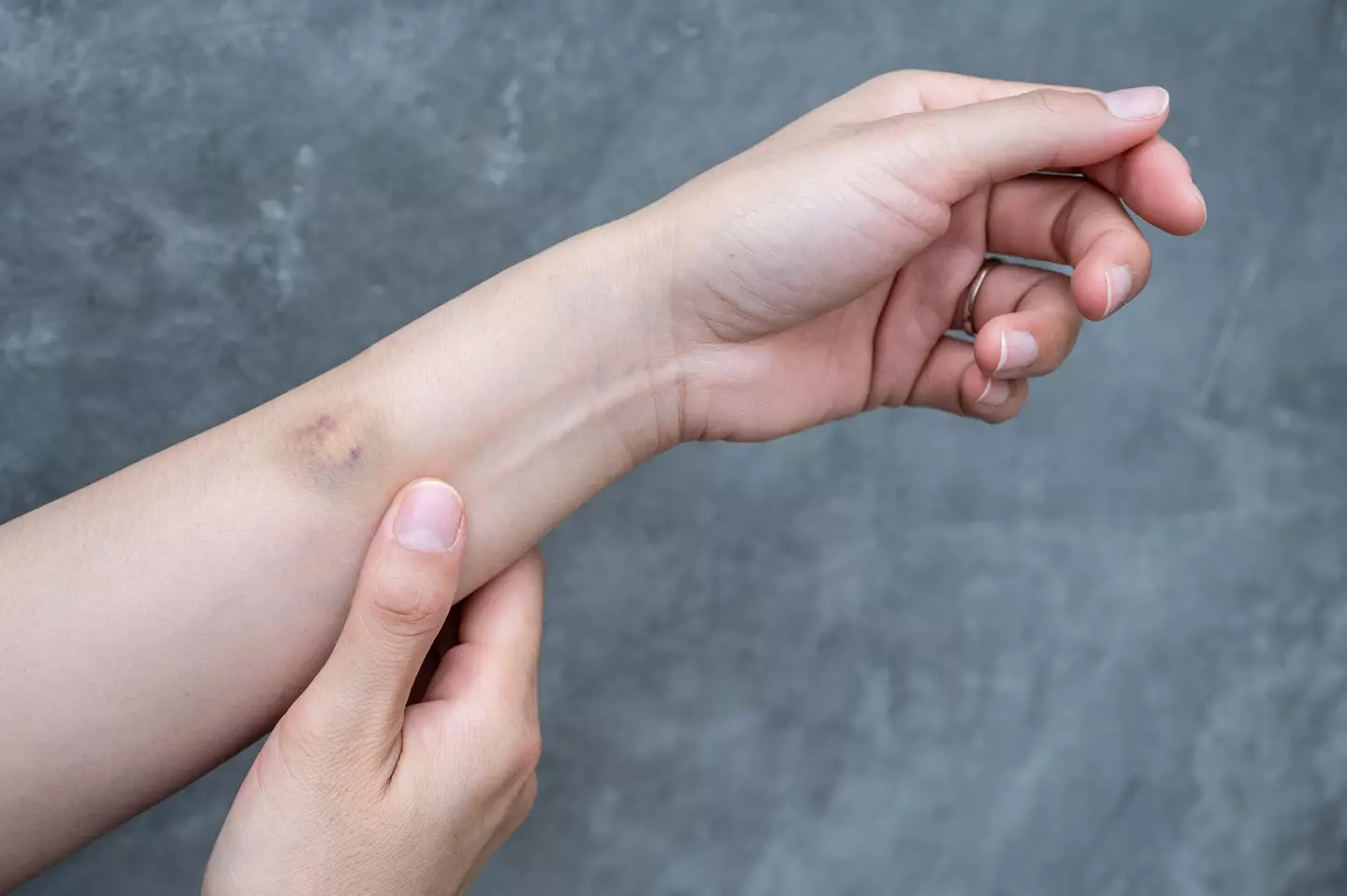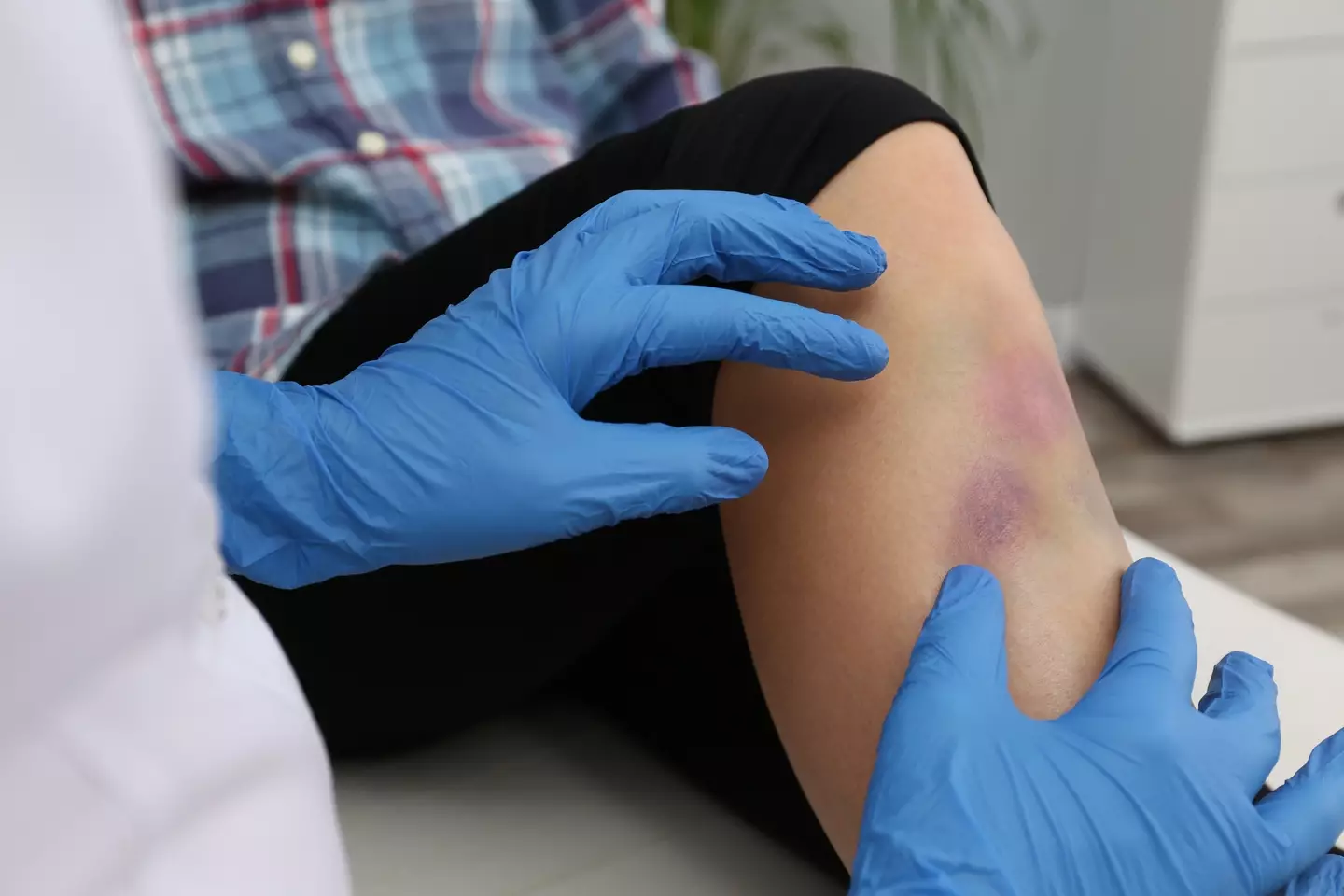
A doctor has explained what you should look out for with a bruise that could mean it's something more severe.
Apparently, a simple bruise or continued fatigue can signal a serious health issue according to a medical expert.
Doctor Karan Rajan, known for his viral videos that inform his 5.3 million TikTok followers about health issues and symptoms, has weighed in on the problem, sharing some facts and stats.

Advert
Dr Rajan began the video in question by stitching a video of a woman who didn't realise that lumps in her neck were actually a symptom of cancer.
He revealed that even though blood cancer is the fifth most common cancer in the UK, a survey from Blood Cancer UK revealed that 52 percent of people didn't know a single symptom of the condition.
The medical professional further explained that bruising, fatigue, swollen lymph nodes, unexplained weight loss and night sweats are symptoms of the disease, but 26 percent of people said they would be unlikely to go to the GP over these problems.
So then this is where the question arises - when should you really worry about a bruise?
When should you see a doctor about a bruise?
Well, if bruises show along with one or more of the listed symptoms, or if bruises persist with no cause, it should be a sign to see your GP.
Advert
The doctor did say that 'only a tiny fraction might have something serious', but at the same time, there is a 'low public awareness of symptoms of leukaemia and lymphomas.'
Bruising could also be a symptom of anaemia, liver conditions, broken bones, or even bleeding disorders.
According to Oxford Urgent Clinic, the time you should check a bruise is if one or more of these points are met:
- The bruise appears with no clear cause.
- It doesn't improve within two weeks, or completely within three to four weeks.
- The bruise feels different from previous ones.
- It is painful and under a fingernail or toenail.
- It is seriously painful and swelling, especially if you're taking blood-thinning medication.
- If you think you've also broken a bone.
- If you have a bruise near your eye, can't see properly or struggle to move your eye.

Advert
Most bruises start off light, often unnoticed, taking just a day or two to turn blue, purple-ish, or a darker tone than your normal skin tone.
It should fade from days 10-14, where it will become more of a tan/yellow colour on lighter skin, or fade altogether on darker skin.
Four weeks and over is the point to speak to your GP if your bruise sticks around, though if you spot tiny red or purple dots, you should see a doctor if you don't know why this is - or if it has spread all over your body.